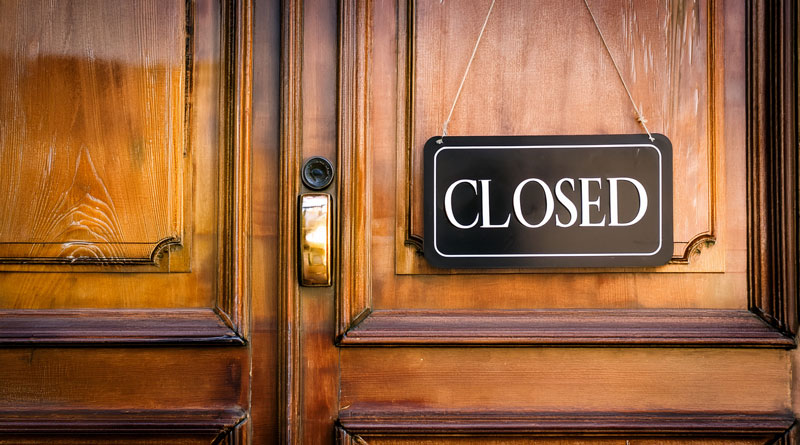UK Hospitality Venues Close At Rate Of Two Per Day As Sector Contracts

The latest Hospitality Market Monitor from CGA by NIQ and AlixPartners indicates the hospitality sector experienced a renewed decline in the first half of 2025, with an average of two licensed venues closing permanently each day.
The report attributes this downturn to increased cost pressures from Government tax policies and new employment costs, which reversed the stability seen in 2024.
Data from the latest Hospitality Market Monitor indicates that Britain’s licensed premises count dropped to 98,746 sites by the end of June, representing a decline of 374 venues since January 1st. This translates to approximately 62 net closures monthly, marking a 0.4% contraction across the hospitality landscape.
The downturn represents a concerning shift for the industry following a relatively stable 2024, where venue numbers remained largely unchanged. Industry experts attribute the recent decline to heightened cost pressures stemming from government policy changes around National Insurance Contributions and taxation, combined with challenging operational conditions.
The latest figures underscore the hospitality sector’s ongoing struggle to recover from the pandemic’s impact. Current venue numbers remain 14.2% below pre-COVID levels recorded in March 2020, with the industry having shed more than 16,000 licensed premises over the five-year period.
The introduction of substantial new employment costs in April has placed additional strain on venue profitability, with industry analysts warning that without mitigation measures, these pressures could trigger further company restructurings during the remainder of 2025.
The closure pattern reveals a stark divide between different hospitality segments. Food-led establishments have experienced the most severe impact, contracting by 2.9% over the past year. This stands in sharp contrast to drink-led venues, which recorded a 1.0% increase during the same period.
This divergence is reflected in performance data showing managed pubs consistently outperforming other hospitality sub-segments in monthly sales throughout 2025.
The resilience of drink-focused venues highlights the varying pressures across different operational models within the sector.
Despite the overall decline, Manchester city centre has bucked the national trend, emerging as the sole major UK city centre to record venue growth between March and June 2025. Among the ten British city centres with the highest concentration of licensed premises, Manchester stands alone in expanding its hospitality offering.
Recent openings in Manchester have included a mix of London-based brands expanding northward, alongside local operators and independent entrepreneurs taking advantage of opportunities in the market. This growth pattern suggests regional variations in both demand and operational viability across the UK’s hospitality landscape.
Graeme Smith, a Partner & Managing Director at AlixPartners, said:
“After a period of relative stability for pub and restaurant businesses last year, the first half of 2025 has proved more challenging, with the net closure rate increasing again – the big question for hospitality is what happens from here.
“The effects of a step change in costs and taxation, which landed this April, have made the trading environment more challenging for many hospitality businesses. Consumer demand appears to be resilient, so the medium-term impact of these changes is yet to be seen, although it seems likely that more closures will follow in the immediate term. In this environment, we would expect the polarisation in the market to continue, with the leading players continuing to grow and take market share from struggling brands.”
Kate Nicholls, Chair of UKHospitality, said:
“These latest figures are a devastating blow, showing in the starkest terms the impact of Government-driven cost pressures. Two hospitality venues closing every day is not just a statistic; it represents the hollowing out of our high streets and communities. Independent businesses, the lifeblood of our sector, are being disproportionately crushed under the weight of unfair taxation and soaring employment costs. The result is a sector in survival mode, where investment is at a standstill. Businesses are being forced to focus on just keeping the lights on, and growth is secondary.”
“This cannot continue. The Government has pushed hospitality to the breaking point, and we now run the very real risk of being taxed out of existence. Ahead of the Budget, we are calling for urgent, decisive action to relieve the burden on a sector that should be a powerful engine for economic growth and job creation across the entire country. The Government must lower the business rates that punish high street businesses, fix the poorly designed National Insurance Contributions that penalise job creation, and cut the rate of VAT to stimulate investment and align us with our European counterparts. Without these changes, we will see this alarming trend of closures accelerate, costing thousands more jobs and decimating high streets across the UK.”
